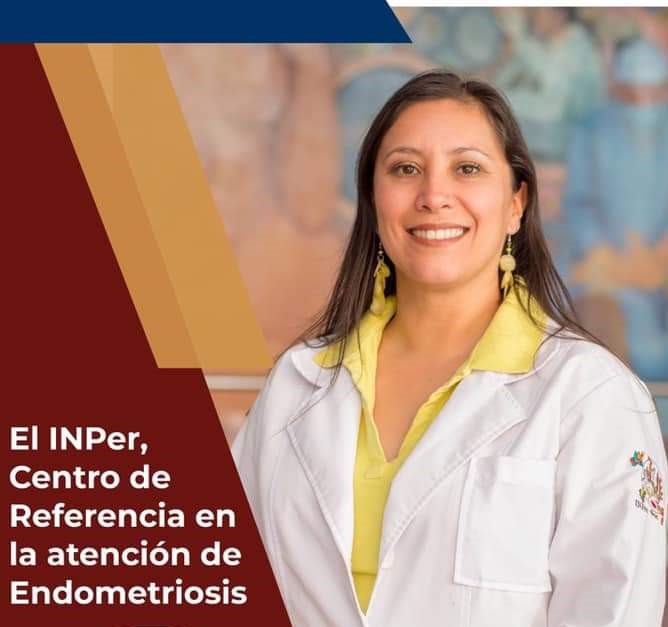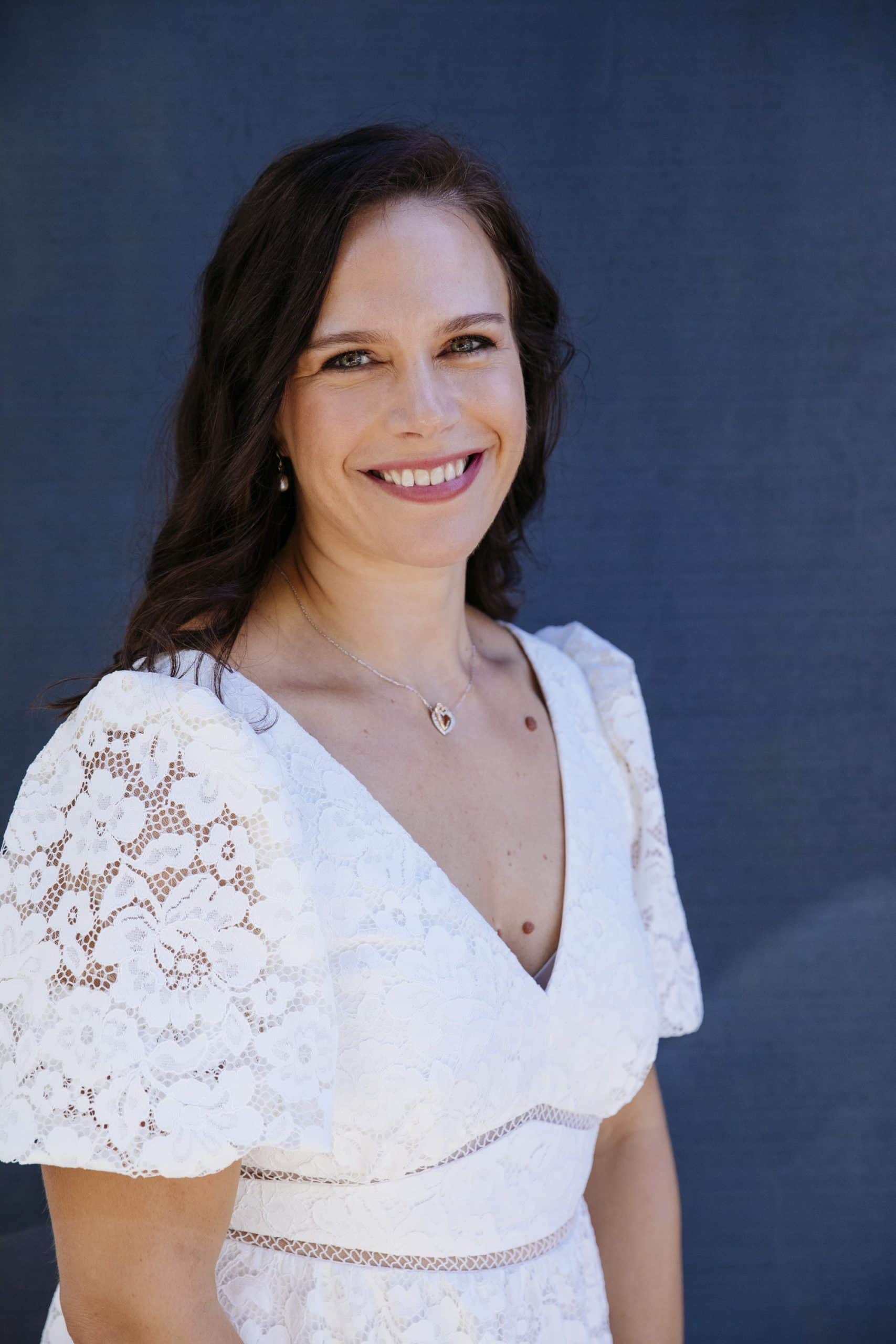
Khush Sra, BASc, RHN
Khush Sra, BASc, RHN
Khush Sra—Endometriosis Dietitian
Summary:
Khush Sra, BASc, RHN, is a trauma-informed endometriosis dietitian and Registered Holistic Nutritionist practicing virtually through EndoNutrition in Oakville, Ontario, Canada. She specializes in personalized, evidence-based nutrition therapy for people living with endometriosis, recognizing it as a complex whole-body condition affecting the gut, hormones, immune system, and nervous system—not just reproductive organs. Through online Zoom appointments, Khush provides comprehensive endometriosis nutrition care focused on reducing pelvic pain, easing period symptoms, improving hormonal balance, and enhancing overall quality of life.
Her approach integrates anti-inflammatory nutrition protocols, blood sugar regulation, estrogen metabolism support, gut health restoration, immune modulation, and nervous system regulation using somatic and trauma-informed tools. By addressing root contributors such as chronic inflammation, impaired estrogen clearance, digestive dysfunction, and nutrient deficiencies, Khush helps clients reduce flare-ups, improve nutrient absorption, decrease bloating, and experience more stable energy and symptom relief. Her care is practical, sustainable, and designed to fit seamlessly into daily life.
Khush offers both standalone 1:1 consultations and structured 4–6 month programs (available in small group or individual formats) for clients seeking long-term support and implementation coaching. She is certified by the Canadian Association of Holistic Nutrition Professionals and trained in Holistic Nutrition, Compassionate Inquiry (Dr. Gabor Maté), Somatic Breathwork, and Health Coaching Program Management. Through EndoNutrition, Khush Sra delivers specialized virtual endometriosis dietitian services that empower patients with realistic, whole-person strategies for lasting symptom management.
Visit Type: Online Appointments Only via Zoom: https://endo.khushsra.com/private-consult-usa
City: Oakville, Ontario
Spoken languages: English
Interpreting services for other languages: No

Melissa Goode, MPH, RDN
Melissa Goode, MPH, RDN
Melissa Goode—Endometriosis Dietitian
Summary: Melissa Goode is a compassionate endometriosis dietitian and Registered Dietitian Nutritionist (RDN) practicing at Goode Nutrition LLC in Sacramento, California. Melissa Goode provides client-centered, non-diet nutrition care for people living with endometriosis, grounded in both evidence-based practice and lived experience — as she also lives with endometriosis herself. Her approach prioritizes individualized strategies over one-size-fits-all diets, focusing on inflammation support, blood sugar regulation, gastrointestinal health, eating enough across all food groups, and sustainable symptom management. Melissa Goode works collaboratively with patients and other healthcare providers to advocate for comprehensive, whole-person care. She helps clients improve quality of life, build body trust, and feel more connected to their bodies through flexible nutrition approaches that honor each person’s unique experience. Licensed in CA, AZ, CO, TX, NY, NJ, MI, CT, VA, and AK, Melissa Goode offers supportive endometriosis nutrition care designed to empower patients and integrate seamlessly into a broader endometriosis treatment plan.
Visit Type: Office
City: Sacramento, CA
Spoken languages: English
Interpreting services for other languages: No

Megan Luybli, MS, RDN, LDN
Megan Luybli, MS, RDN, LDN
Megan Luybli—Endometriosis Dietitian
Summary: Megan Luybli is a compassionate endometriosis dietitian practicing at A Soft Place to Land in Bethlehem, Pennsylvania. Megan Luybli’s approach centers on patient-centered, weight-inclusive care that supports your unique journey with endometriosis. Understanding the physical and emotional challenges endometriosis brings, she focuses on improving your relationship with food and body while addressing digestive symptoms like bloating and discomfort. Megan Luybli embraces a Health at Every Size® (HAES®) philosophy, emphasizing gentle nutrition rather than restrictive diets, and also specializes in eating disorder recovery. Her goal is to provide holistic support that respects your choices and complements your medical care. With Megan Luybli, you won’t have to face endometriosis alone — she advocates for you and helps create a personalized plan to ease symptoms and enhance well-being in a warm, supportive environment.
Visit Type: Office
City: Bethlehem, PA
Spoken languages: English
Interpreting services for other languages: No

Jennifer Mier-Cabrera
Jennifer Mier-Cabrera, Dietitian
City: Mexico City, Mexico

Sarah Rae, RDN, CD, CLC
Sarah Rae, RDN, CD, CLC
Sarah Rae—Endometriosis Dietitian
Summary: Sarah Rae is a dedicated endometriosis dietitian based at Pacific Northwest Endometriosis Nutrition in Seattle, Washington. As a registered dietitian, Sarah Rae specializes in helping individuals manage endometriosis symptoms and support fertility through personalized, non-restrictive nutrition plans. She focuses on empowering patients to find freedom with food by identifying triggers and improving symptoms with evidence-based, anti-inflammatory dietary approaches. Sarah Rae also supports lifestyle changes that reduce stress and enhance overall quality of life. She works closely with patients navigating common challenges like bloating, constipation, diarrhea, and SIBO, guiding them through gluten-free or low-FODMAP diets when appropriate. Her patient-centered approach incorporates intuitive eating to manage weight changes without strict dieting. Sarah Rae’s warm, knowledgeable care aims to help patients feel confident in their nutrition choices while improving symptom management and well-being.
Visit Type: Virtual
City: Seattle, WA
Spoken languages: English
Interpreting services for other languages: No

Georgia Spry
Georgia Spry
Georgia Spry—Endometriosis Dietitian
Summary: Georgia Spry is a compassionate endometriosis dietitian at The Dietologist in Chippendale, dedicated to providing personalized nutrition care tailored to each individual’s unique needs. Georgia Spry focuses on reducing endometriosis-related pain, improving gastrointestinal health, and supporting fertility through flexible, evidence-based dietary strategies. Her patient-centered approach avoids strict elimination diets, encouraging sustainable nutrition habits that fit into everyday life. Georgia collaborates closely with multidisciplinary teams to ensure coordinated care, addressing common nutrient deficiencies like iron and vitamin D while helping patients manage food intolerances with minimal restrictions. She emphasizes anti-inflammatory diets to ease symptoms and uses targeted nutrition strategies to relieve digestive issues such as constipation, diarrhea, and bloating. Georgia Spry also offers customized supplementation and fertility nutrition plans to enhance reproductive outcomes. With warmth and expertise, she empowers patients to regain control over their health and quality of life.
Visit types: Virtual
Spoken languages: English
Interpreting services for other languages: No
Philosophy of care for endometriosis patients:
Financial Disclosure

Candice Crellin
Candice Crellin
Candice Crellin—Endometriosis Dietitian
Summary: Candice Crellin is a dedicated endometriosis dietitian based in New South Wales, Australia, who offers personalized, science-based nutrition care to improve quality of life. Candice Crellin focuses on creating flexible, patient-centered diet plans that reduce endometriosis-related pain, support gastrointestinal health, and enhance fertility when desired. Her approach avoids strict elimination diets, instead promoting nutritional strategies that fit each person’s unique lifestyle and needs. Candice collaborates with multidisciplinary healthcare teams to ensure coordinated and comprehensive care. She helps patients identify and manage food intolerances with minimal restrictions, correct common nutrient deficiencies such as iron and vitamin D, and adopt anti-inflammatory diets to ease symptoms. Candice Crellin also provides tailored supplementation and fertility-focused guidance to support reproductive health. With a compassionate and practical approach, she empowers patients to navigate their nutrition journey confidently while managing endometriosis symptoms effectively.
Visit types: Virtual
Spoken languages: English
Interpreting services for other languages: No
Philosophy of care for endometriosis patients:
Our philosophy at The Dietologist is all about finding each person’s unique blueprint when it comes to their diet and lifestyle that can help improve their daily life, reduce their endometriosis-related pain, improve their gastrointestinal function and optimise current or future fertility (if desired). We have a philosophy of person-centered care based on the latest science, collaborating with multi-disciplinary team members for optimised and coordinated care, as well as approaching nutrition in a non-perfectionistic and flexible way! No unnecessary strict elimination diet protocols that make you feel bad about yourself for “slipping up”, we want you to experience maximum flexibility with your nutrition so you can live life how you want to, with minimum symptoms getting in the way!
The right diet for an individual can help correct common nutrient deficiencies – iron, B12, vitamin D, and calcium
identify and navigate food intolerances (more common in those with endometriosis) with as little restriction as possible
adopt anti-inflammatory dietary patterns to manage pain and chronic inflammatory symptoms associated with endometriosis
nutritional strategies to help with constipation, diarrhea and bloating as well as IBS (judicious use of the low FODMAP diet as required)
design bespoke supplementation plans to support dietary intake as well as endometriosis symptoms. Supportive nutrition strategies for individuals and couples trying to conceive (assisted or unassisted) – including optimising egg quality before IVF, conception, or egg freezing, supporting sperm quality and enhancing implantation using evidence-based nutrition strategies.

Stefanie Valakas
Stefanie Valakas
Stefanie Valakas—Endometriosis Dietitian
Summary: Stefanie Valakas is an experienced endometriosis dietitian based in New South Wales, Australia, dedicated to personalized, flexible nutrition care. Stefanie Valakas focuses on helping patients manage endometriosis symptoms by tailoring diet and lifestyle strategies that reduce pain, improve gastrointestinal health, and support fertility goals. Her approach emphasizes a non-restrictive, science-based method that avoids rigid elimination diets, promoting balance and enjoyment in eating while minimizing symptoms. Stefanie collaborates closely with multidisciplinary healthcare teams to provide coordinated, patient-centered care. She helps identify common nutrient deficiencies like iron and vitamin D, navigate food intolerances, and adopt anti-inflammatory diets that can ease chronic inflammation linked to endometriosis. Stefanie Valakas also offers customized supplementation plans and fertility-focused nutritional guidance to optimize reproductive health. Her warm and professional approach empowers patients to take control of their nutrition and improve quality of life through sustainable, evidence-based strategies.
Visit types: Virtual
Spoken languages: English
Interpreting services for other languages: No
Philosophy of care for endometriosis patients:
Our philosophy at The Dietologist is all about finding each person’s unique blueprint when it comes to their diet and lifestyle that can help improve their daily life, reduce their endometriosis-related pain, improve their gastrointestinal function and optimise current or future fertility (if desired). We have a philosophy of person-centered care based on the latest science, collaborating with multi-disciplinary team members for optimised and coordinated care, as well as approaching nutrition in a non-perfectionistic and flexible way! No unnecessary strict elimination diet protocols that make you feel bad about yourself for “slipping up.” We want you to experience maximum flexibility with your nutrition so you can live life how you want to, with minimum symptoms getting in the way!
The right diet for an individual can help correct common nutrient deficiencies—iron, B12, vitamin D, and calcium.
identify and navigate food intolerances (more common in those with endometriosis) with as little restriction as possible
Adopt anti-inflammatory dietary patterns to manage pain and chronic inflammatory symptoms associated with endometriosis, nutritional strategies to help with constipation, diarrhea, and bloating, as well as IBS (judicious use of the low FODMAP diet as required,) design bespoke supplementation plans to support dietary intake as well as endometriosis symptoms. Supportive nutrition strategies for individuals and couples trying to conceive (assisted or unassisted)—including optimizing egg quality before IVF, conception, or egg freezing; supporting sperm quality; and enhancing implantation using evidence-based nutrition strategies.

